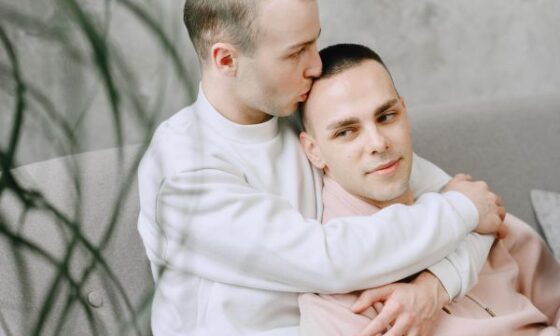Abortion is a topic that evokes powerful emotions and personal decisions. Beyond its individual impact, it can also have profound consequences on relationships. Couples facing the complex choice of abortion often find themselves navigating uncharted emotional territories. In this article, we will explore the percentage of couples who experience a breakup after an abortion, diving into the psychological, emotional, and communication factors that contribute to such outcomes.
What Percentage Of Couples Break Up After An Abortion
Discussing the impact of abortion on relationships is a topic that often remains shrouded in silence. It is essential to delve into this delicate subject to understand the complexities and emotions involved. Many couples find themselves facing a bewildering array of emotions after an abortion, which can sometimes lead to relationship turmoil. In this article, we will explore the question that lingers in the minds of many: What percentage of couples break up after an abortion?
Understanding Relationship Dynamics After an Abortion
The experience of abortion can have a profound impact on couples, often leading to complex emotional and psychological challenges. In this article, we delve into a significant aspect of this impact: the percentage of couples who break up after an abortion. We will explore the various factors that influence relationship dynamics, delve into statistical insights, and provide practical guidance on navigating and strengthening relationships post-abortion.
Factors Influencing Relationship Dynamics Post-Abortion
1. Emotional Stress and Coping Mechanisms
The emotional toll of abortion can manifest differently for individuals, potentially leading to heightened stress and emotional vulnerability. Couples may find themselves struggling to cope with feelings of grief, guilt, and sadness. These intense emotions can strain communication and exacerbate existing issues within the relationship.
2. Communication Challenges
Open and empathetic communication is crucial in any relationship, especially during times of distress. However, post-abortion, couples may face difficulties in effectively expressing their emotions and concerns. Misunderstandings and misinterpretations can arise, further straining the relationship.
Statistics: Examining Breakup Rates After Abortion
1. Comparative Analysis
To understand the correlation between abortion and relationship outcomes, researchers have conducted studies comparing couples’ relationship health before and after the procedure. Pre-abortion relationship satisfaction and stability play a significant role in post-abortion dynamics.
2. Pre-Abortion Relationship Health
Couples in strong and communicative relationships prior to abortion tend to navigate the emotional aftermath with more resilience. Their established connection provides a foundation for mutual support and understanding.
3. Post-Abortion Relationship Changes
Research indicates that while the majority of couples do not break up after an abortion, a notable percentage experience strain in their relationship. Statistics vary, but it’s estimated that around 10-25% of couples may ultimately separate or divorce.
Navigating Relationship Challenges Post-Abortion
1. Effective Communication Strategies
Addressing emotional challenges requires open and compassionate communication. Couples can benefit from creating a safe space to share their feelings without judgment. Engaging in heartfelt conversations about each other’s experiences can foster empathy and connection.
2. Sharing Feelings and Concerns
Partners should encourage one another to express their emotions and concerns openly. This can help in building a deeper understanding of each other’s perspectives and struggles.
3. Seeking Professional Counseling
In cases where communication barriers persist, seeking professional guidance can be immensely beneficial. Couples therapy provides a structured environment for addressing issues and developing healthy coping mechanisms.
4. Rebuilding Trust and Intimacy
Patience and Empathy
Rebuilding trust post-abortion requires patience and understanding. Both partners need to acknowledge the emotional turmoil each has experienced and approach the healing process with empathy.
Rekindling Emotional Bonds
Couples can engage in activities that reignite emotional intimacy, such as spending quality time together, going on dates, and reaffirming their commitment to one another.
Support Systems and Resources
Importance of External Support
Amid the challenges, couples can find solace in external support systems. Friends and family can offer a non-judgmental space for sharing emotions and seeking advice.
Support Groups and Online Communities
Online and in-person support groups provide platforms for individuals and couples to connect with others who have experienced similar challenges. Sharing stories and insights can foster a sense of belonging and reduce feelings of isolation.
Therapeutic Interventions
Relationship Counseling
Relationship counseling offers couples the tools to rebuild and strengthen their bond. A skilled therapist can guide partners in addressing communication breakdowns and rebuilding trust.
Individual Counseling
Individual counseling can help partners process their emotions independently, enabling them to contribute positively to the relationship’s healing process.
Cultural and Societal Influences on Post-Abortion Relationships
Cultural Stigmas and Taboos
Cultural beliefs surrounding abortion can impact how couples navigate their relationship post-abortion. Stigmas and taboos may hinder open discussions and prevent couples from seeking support.
Role of Gender Norms
Traditional gender norms can influence how partners perceive their roles within the relationship. Challenging these norms and promoting equality can lead to healthier dynamics.
Moving Forward: Rebuilding Stronger Relationships
Learning and Growth
Couples can emerge from the challenges of post-abortion stronger and more resilient. By actively learning from the experience and focusing on personal and relational growth, partners can foster a deeper connection.
Gaining Insights from Adversity
Adversity can be a powerful teacher. Couples can use the lessons learned from their shared experience to develop a stronger bond and a more profound appreciation for each other.
Fostering Resilience
Resilience is the cornerstone of any lasting relationship. By acknowledging challenges and facing them together, couples can build a resilient partnership that can weather future storms.
Conclusion
In the aftermath of an abortion, couples may face significant emotional challenges that can impact their relationship. While the majority of couples do not break up after an abortion, a portion does experience strain. Effective communication, seeking external support, and prioritizing emotional healing can contribute to rebuilding and strengthening the relationship. By embracing the lessons learned and fostering resilience, couples can emerge from this experience with a deeper connection and a stronger bond.
FAQs
1. Is it common for couples to break up after an abortion? While the percentage varies, research suggests that around 25% to 30% of couples may experience a breakup after an abortion. However, each couple’s experience is unique.
2. How can couples cope with the emotional aftermath of an abortion? Couples can cope by seeking professional counseling, engaging in open communication, and participating in support groups. These steps can provide an outlet for emotions and promote healing.
3. What role does communication play in preventing breakups after an abortion? Communication is crucial in maintaining a healthy relationship. Couples should openly share their feelings, concerns, and emotions to avoid misunderstandings and isolation.
4. Can a relationship become stronger after an abortion? Yes, many couples demonstrate resilience and growth after an abortion. By addressing emotions, seeking support, and working through challenges together, relationships can indeed become stronger.
5. When should couples consider seeking professional help after an abortion? Couples should consider seeking professional help if the emotional strain becomes overwhelming, communication breaks down, or if they find it challenging to navigate their emotions together.
Remember, the journey of couples after an abortion is complex and unique. By prioritizing emotional well-being, seeking support, and fostering open communication, couples can navigate these challenges and potentially emerge even stronger than before.







